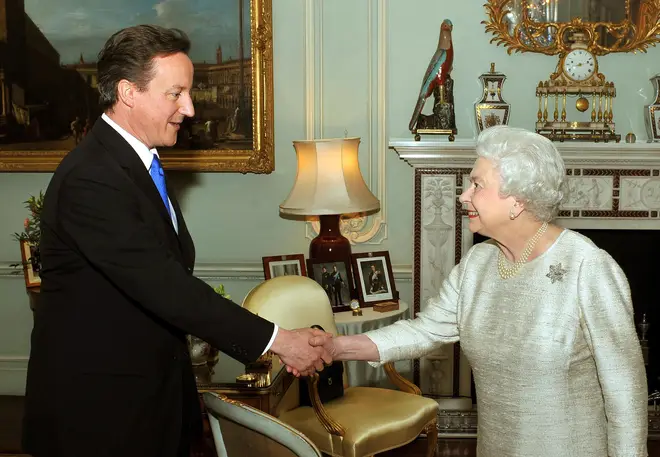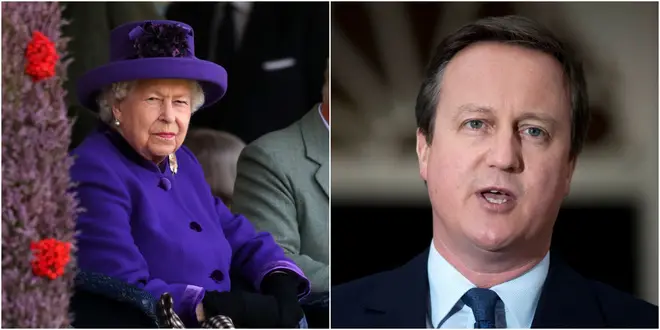
Nick Abbot 12am - 1am
19 September 2019, 17:25

The ex-PM's suggestion that "a raising of the eyebrow" by the Queen might help the anti-independence campaign in the Scottish referendum has caused "an amount of displeasure" in Buckingham Palace.
David Cameron has admitted he sought the monarch's help after he was "panicked" by a poll during the 2014 referendum campaign which suggested a lead for those wanting to leave the United Kingdom.
He admitted saying to Palace officials that "just a raising of the eyebrow" might imply the Queen's views on independence and help the No campaign.
Mr Cameron told the BBC: "I remember conversations I had with my private secretary and he had with the Queen's private secretary and I had with the Queen's private secretary, not asking for anything that would be in any way improper or unconstitutional, but just a raising of the eyebrow, even, you know, a quarter of an inch, we thought would make a difference.
A few days later and before the 18 September 2014 vote the Queen said people should "think carefully about the future".
The former prime minister acknowledged he had said "perhaps a little bit too much" about his dealings with the monarch, who is meant to remain above the political fray.
Buckingham Palace has made no official comment on Mr Cameron's remarks.
The former Tory leader also discusses the Scottish referendum in his book, which he has been publicising this week.
A referendum took place on Thursday 18 September 2014 on Scottish independence. The referendum question was, "Should Scotland be an independent country?"
The "No" side won with 55.3% voting against independence and 44.7% voting in favour.

As Head of State The Queen has to remain strictly neutral with respect to political matters, unable to vote or stand for election.
Her Majesty keeps her politics hidden from the public eye at all times. Always neutral, never biased, Elizabeth II has never given a press interview.
Dubbed “Elizabeth the silent”, the longest reigning monarch in history appears to be devoid of partisan opinions.
David Cameron's Scottish referendum comments suggest that in 2014 he used the Queen for his own political purposes - which goes completely against the monarch's position on keeping her distance with politics.
It is also not the first time Mr Cameron has been accused of indiscretion in his dealings with the Queen.
Mr Cameron apologised to the monarch in 2014 after he was overheard saying she "purred" on hearing the result of the Scottish referendum. He said talking about her reaction had been a "terrible mistake".
The revelation comes as the Queen's dealings with the current Prime Minister are also in the spotlight after Boris Johnson told her to order the suspension of Parliament - which is the subject of a legal battle at the Supreme Court.
The two cases are very different, but both highlight the greys of the Queen's constitutional position, the discretion she has or lacks, under extraordinary circumstances, to speak out and act.